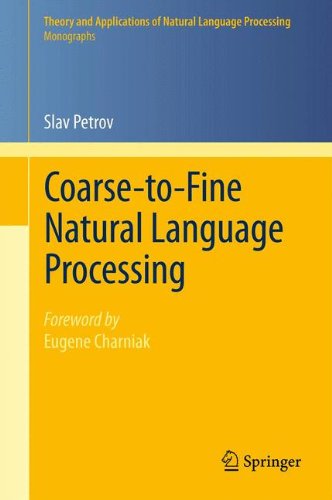

Most ebook files are in PDF format, so you can easily read them using various software such as Foxit Reader or directly on the Google Chrome browser.
Some ebook files are released by publishers in other formats such as .awz, .mobi, .epub, .fb2, etc. You may need to install specific software to read these formats on mobile/PC, such as Calibre.
Please read the tutorial at this link: https://ebookbell.com/faq
We offer FREE conversion to the popular formats you request; however, this may take some time. Therefore, right after payment, please email us, and we will try to provide the service as quickly as possible.
For some exceptional file formats or broken links (if any), please refrain from opening any disputes. Instead, email us first, and we will try to assist within a maximum of 6 hours.
EbookBell Team

0.0
0 reviewsThe impact of computer systems that can understand natural language will be tremendous. To develop this capability we need to be able to automatically and efficiently analyze large amounts of text. Manually devised rules are not sufficient to provide coverage to handle the complex structure of natural language, necessitating systems that can automatically learn from examples. To handle the flexibility of natural language, it has become standard practice to use statistical models, which assign probabilities for example to the different meanings of a word or the plausibility of grammatical constructions.
This book develops a general coarse-to-fine framework for learning and inference in large statistical models for natural language processing.
Coarse-to-fine approaches exploit a sequence of models which introduce complexity gradually. At the top of the sequence is a trivial model in which learning and inference are both cheap. Each subsequent model refines the previous one, until a final, full-complexity model is reached. Applications of this framework to syntactic parsing, speech recognition and machine translation are presented, demonstrating the effectiveness of the approach in terms of accuracy and speed. The book is intended for students and researchers interested in statistical approaches to Natural Language Processing.
Slav’s work Coarse-to-Fine Natural Language Processing represents a major advance in the area of syntactic parsing, and a great advertisement for the superiority of the machine-learning approach.
Eugene Charniak (Brown University)